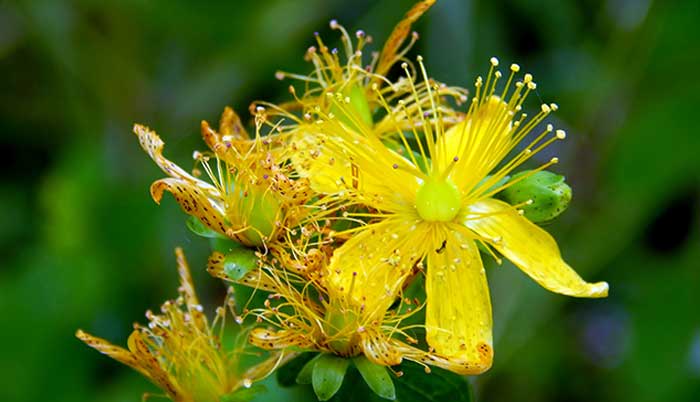![]() Home > Lifestyle
Home > Lifestyle
St. John’s Wort: A Scientific Review Of Its Remarkable Antibacterial And Antioxidant Properties

![]() February 6th, 2018 | 10:39 AM |
February 6th, 2018 | 10:39 AM | ![]() 1224 views
1224 views
NATURALNEWS.COM
In a recently published study, researchers from the Muğla Sıtkı Koçman University and Mehmet Akif Ersoy University in Turkey have found that extracts from the Hypericum perforatum L. (commonly known as St. John’s wort) have antibacterial, antioxidant, and antimutagenic (prevents the alteration of a genetic material in a cell) properties.
The study, which was published in the African Journal of Traditional, Complementary and Alternative Medicines, evaluated the properties of the plant extract against bacteria strains which cause mastitis, a disease (usually caused by bacteria) which causes an inflammation of mammary glands.
Mastitis happens when the breast tissue is infected. This results in pain in the affected area, as well as visible swelling and redness. In some cases, mastitis will also bring fever and chills. The condition commonly affects women who are breastfeeding (lactation mastitis), but it can occur even when she is not breastfeeding.
While mastitis is normally caused by a blocked milk duct caused by poor breastfeeding technique, another reason for the condition is a bacterial infection. This can be caused either by a break or a crack in the skin of the nipple or even by stagnant milk which may be a breeding ground for bacteria.
H. perforatum, on the other hand, has been used as a medicinal plant the world over. Earlier studies have revealed its antidepressant, antiviral, and wound-healing properties. Moreover, the extracts of H. perforatum contains bioactive ingredients that have multiple health benefits.
For the study, researchers took H. perforatum flowers from Izmir, Turkey. These were taxonomically identified after and were stored afterward. To produce the extract, the flowers were thoroughly cleaned using flowing, distilled water, and were air-dried afterward. These were then pulverized in a “disruptive” mill. Prior to its use, the flowers were stored at four degrees Celsius. These were then extracted using a methanol solvent to produce an extract.
Extracts from the H. perforatum flowers were used against the mastitis bacteria — in particular, Staphylococcus aureus and the coagulase-negative staphylococci (CNS). The pathogens were subjected to 37 degrees Celsius over a 24-hour-period.
To determine the antibacterial property of the extract, a Kirby-Bauer assay was used. After 24 hours, the inhibition zones around the discs were observed and compared against the controlled sample. The 2,2-diphenyl-1-picrylhydrazyl-hydrate (DPPH) radical was used to evaluate the antioxidant properties of the H. perforatum extract by measuring the level of free radical activity of DPPH after the introduction of the extract, while for its antimutagenic properties, extracts were tested against a Salmonella Typhimurium assay.
Results indicated that extracts from H. perforatum flowers were able to inhibit bacterial growth in both strains, via the formation of inhibition zones. The extract also managed to inhibit 32 percent of free radical activity based on the DPPH test. Additionally, H. perforatum displayed antimutagenic properties, displaying no mutagenic potentials based on the S. Typhimurium tests.
Overall, researchers found out the H. perforatum extract contained significant antibacterial properties, which could have potential pharmacological uses — particularly in plant-based medicine. While it exhibited antioxidant property, the research team posited that the plant’s ability to counter cell mutation opens the door to further research. “Additionally, this plant was showed antimutagenic properties and which is highly important,” the researchers wrote. “The study suggests that Hypericum perforatum, owing to its antimutagenic property, can be beneficial for prevention of cancer.”
Source:
courtesy of NATURALNEWS
by Ralph Flores
If you have any stories or news that you would like to share with the global online community, please feel free to share it with us by contacting us directly at [email protected]